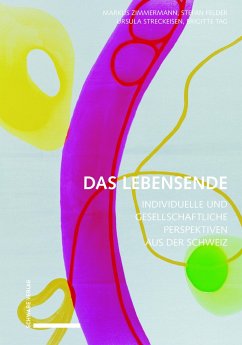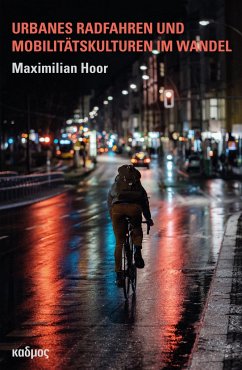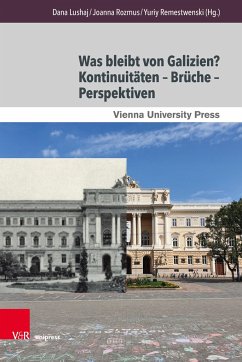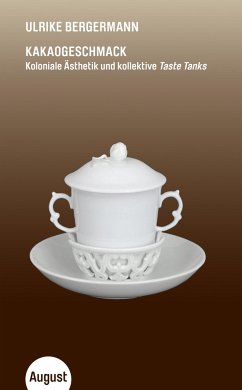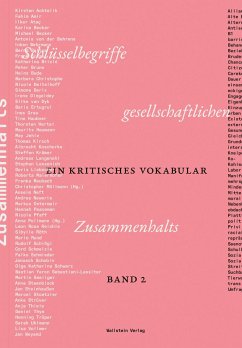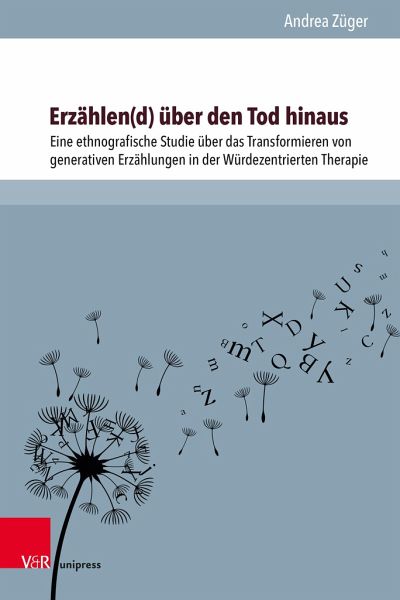
Erzählen(d) über den Tod hinaus
Eine ethnografische Studie über das Transformieren von generativen Erzählungen in der Würdezentrierten Therapie

PAYBACK Punkte
0 °P sammeln!
In der Würdezentrierten Therapie erzählen Menschen und andere hören zu. Ein Gerät zeichnet auf und jemand tippt. Mündliches wird zu Schriftlichem und Flüchtiges zu Konserviertem. Es wird berührt - nicht nur die Seele, sondern auch Papier - Menschen lesen leise und lesen vor, jemand geht und etwas bleibt. Ein Dokument, eine Hinterlassenschaft, Erinnerungen. Durch die achtsame Beschreibung dieser psychologischen Intervention für schwerkranke Menschen, das Verständnis der generativen Erzählung als multidimensionales Gefüge - aus Sprache, Körper-Leib, Materialität und Medialität - un...
In der Würdezentrierten Therapie erzählen Menschen und andere hören zu. Ein Gerät zeichnet auf und jemand tippt. Mündliches wird zu Schriftlichem und Flüchtiges zu Konserviertem. Es wird berührt - nicht nur die Seele, sondern auch Papier - Menschen lesen leise und lesen vor, jemand geht und etwas bleibt. Ein Dokument, eine Hinterlassenschaft, Erinnerungen. Durch die achtsame Beschreibung dieser psychologischen Intervention für schwerkranke Menschen, das Verständnis der generativen Erzählung als multidimensionales Gefüge - aus Sprache, Körper-Leib, Materialität und Medialität - und durch die Analyse von Deutung und Bedeutungszuschreibung der involvierten Akteur_innen bietet Andrea Züger mit ihrer kulturwissenschaftlichen Analyse nicht nur Impulse für professionelles therapeutisches Handeln und ethische Fragen, sondern gibt auch Hinweise auf potentielle Wirkmechanismen.
Die vorliegende Arbeit wurde mit dem Dissertationspreis der Justus-Liebig-Universität Gießen und dem Stolzenberg-Preis für exzellente Dissertationen ausgezeichnet.
In Dignity Therapy, people talk and others listen. A device records and someone types. The oral becomes written and the ephemeral becomes preserved. It is touched - not only the soul, but also paper - people read quietly and read aloud, someone leaves, and something remains. A document, a legacy, memories. Through the attentive description of this psychological intervention for seriously ill people, the understanding of the generative narrative as a multidimensional structure - of language, body-mind, materiality and mediality - and through the analysis of interpretation and attribution of meaning of the actors involved, Andrea Züger not only offers impulses for professional therapeutic action and ethical questions with her cultural studies analysis, but also gives indications of potential effect mechanism.
Die vorliegende Arbeit wurde mit dem Dissertationspreis der Justus-Liebig-Universität Gießen und dem Stolzenberg-Preis für exzellente Dissertationen ausgezeichnet.
In Dignity Therapy, people talk and others listen. A device records and someone types. The oral becomes written and the ephemeral becomes preserved. It is touched - not only the soul, but also paper - people read quietly and read aloud, someone leaves, and something remains. A document, a legacy, memories. Through the attentive description of this psychological intervention for seriously ill people, the understanding of the generative narrative as a multidimensional structure - of language, body-mind, materiality and mediality - and through the analysis of interpretation and attribution of meaning of the actors involved, Andrea Züger not only offers impulses for professional therapeutic action and ethical questions with her cultural studies analysis, but also gives indications of potential effect mechanism.




